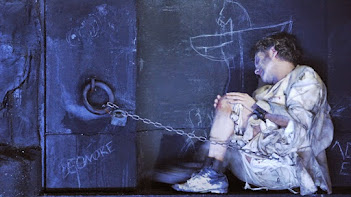One of the rare occasions in which the concert halls around the world have been crowded with active military personnel took place in Vienna in 1805 on the occasion of the premiere of Fidelio, Beethoven's only opera. With the city occupied by Napoleonic troops, most of the audience was made up of officers and non-commissioned officers of the French army. Unperturbed, they attended the performance of the first version of the opera in the Theater an der Wien. By the way, the reception was pitiful.
Fidelio - a second version
Beethoven revised the work the following year. After rearranging some sections and reducing the original three acts to only two, it was performed again in March 1806 at the same theater, this time successfully. But the composer had begun to suspect that he was not receiving the full economic benefits that were due to him, and soon after decided to withdraw the work from the stage.
Third version
A new performance only took place in 1814, when, after the revision of some texts, it was featured at the Kärntnertor theater with the title "Fidelio" together with an overture of the same name. The work, initially inspired by the play "Leonora, ossia l'amore coniugale", by Jean N. Bouilli, tells the story of Leonora who, in her endeavor to rescue her husband – a political prisoner – from a 17th-century Spanish prison, goes to work there disguised as a man, as a certain Fidelio.
Leonore Overture No. 3 in C major, Op. 72
Each of these three versions featured a different overture. The last one, as already mentioned, featured the Fidelio overture. The first included what is known today as Leonora No. 2 (composed No. 1 for a performance in Prague that never took place). It was the second version – that of 1806 – the one performed with the overture that has come down to us as Leonora No. 3, opus 72, and which has finally proved to be the favorite of audiences and conductors, with the exception of the French who, it is said, still prefer No. 2 as it would be the one Napoleon heard.
Daniel Barenboim conducts the West-Eastern Divan Orchestra.


No comments :
Post a Comment